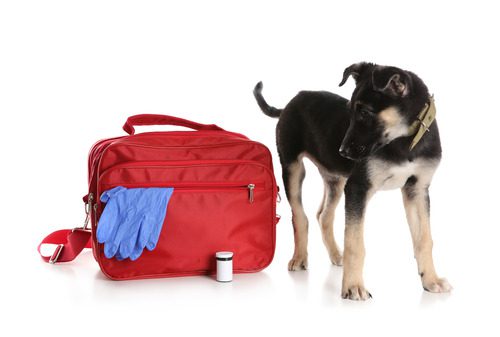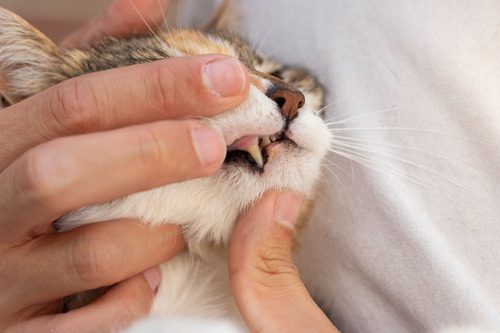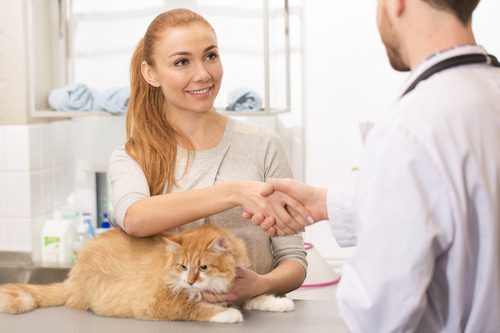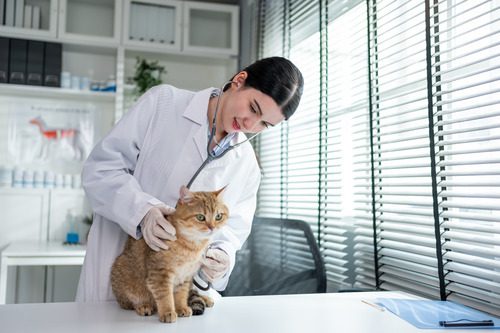Emergency Pet Checklist: Everything You Need to Know
When unexpected emergencies strike, having a well-prepared plan can make a significant difference in managing your pet’s safety and well-being. This blog will guide you through creating an effective emergency pet checklist, ensuring you’re ready for any situation. Remember, for immediate assistance or if an emergency arises, contact Cornerstone Veterinary Hospital of Clifton Park at (518) 383-6254.

Understanding the Basics of Pet Emergencies
Emergencies can range from medical crises to natural disasters. Being aware of what constitutes an emergency for your pet is the first step in preparation. Signs of a pet emergency might include severe bleeding, difficulty breathing, sudden collapses, or extreme pain. During these moments, quick and calm action is essential.
What to Watch For
Recognizing the signs of distress or illness in pets can often be subtle. Changes in behavior, such as increased lethargy, aggressive behavior, or unusual vocalization, are key indicators that something might be wrong.
Building Your Emergency Pet Checklist
An emergency pet checklist is a comprehensive list of items and information vital in a crisis. This checklist will ensure you have everything needed at a moment’s notice.
Essential Items to Include
Your emergency kit should include, at a minimum, the following items:
- First-aid kit tailored for pets
- A week’s supply of pet food and water
- Leashes or carriers
- Medications with dosage instructions
- Your pet’s medical records
- Comfort items like a favorite toy or blanket
Preparing for Natural Disasters
In areas prone to natural disasters like floods, fires, or hurricanes, specific preparations are crucial. Ensure your pet’s safety by planning how to evacuate quickly and safely. Practice evacuation routes and have a pet-friendly location in mind before disaster strikes. Always keep pet carriers accessible and ensure your pet is familiar with being in one.
Maintaining Your Pet’s Medical Records
In emergencies, having quick access to your pet’s medical records is invaluable. These documents should be kept up-to-date and readily accessible in your emergency kit.
Important Documents to Keep
Include your pet’s vaccination records, a list of any ongoing medications, and recent medical treatments. Having contact information for Cornerstone Veterinary Hospital of Clifton Park and a backup vet is also wise.
What to Do in a Pet Medical Emergency
While it’s crucial to get your pet to a veterinary professional in the event of a medical emergency, knowing what to do in the first few moments can be critical. Stay calm and assess the situation. Remove any dangers if safely possible and contact a veterinarian immediately. Cornerstone Veterinary Hospital of Clifton Park can be reached at (518) 383-6254 for guidance and immediate assistance.
Regularly Updating Your Emergency Kit
Just like any safety plan, your emergency pet checklist should be reviewed and updated regularly. This ensures all items are functional and ready to use when needed.
Checking and Replacing Items
Periodically check expiration dates on food and medications, replace used supplies, and consider any changes in your pet’s health that might require adjustments to the kit.
Emergency Preparedness Is Key
Creating and maintaining an emergency pet checklist is an essential part of pet ownership. By preparing in advance, you ensure that you can act swiftly and effectively, minimizing stress for both you and your pet during critical times. If you’re unsure about what to include in your emergency kit or need advice specific to your pet, call Cornerstone Veterinary Hospital of Clifton Park at (518) 383-6254. Our team is here to help ensure you and your pet are prepared for any situation.
Recent Posts
My Cat Lost a Fang Tooth: What Do I Do?
My Cat Lost a Fang Tooth: What Do I Do? It’s always a little jarring to discover…
FHO Surgery in Cats
FHO Surgery in Cats When a cat experiences hip pain that limits movement and quality of life,…
Can Cats Get Parvo?
Can Cats Get Parvo? Parvo is a word that strikes fear into the hearts of many dog…
About Us
Originally opened as Animal Care Hospital by Dr. Mark Johnston in 1989, the hospital became Cornerstone Veterinary Hospital in 2015 when it was purchased by Drs. Alan and Lisa Knott. The name 'Cornerstone' holds a special place in their hearts, representing not only their Christian faith but also their commitment to being the cornerstone of the community in which they practice. As a family-owned and operated practice, every pet is treated as part of the family, ensuring they receive the highest standard of care. The team at Cornerstone Veterinary Hospital is dedicated to building lasting relationships with clients and their beloved pets, striving to be the cornerstone of the community in which they practice.



